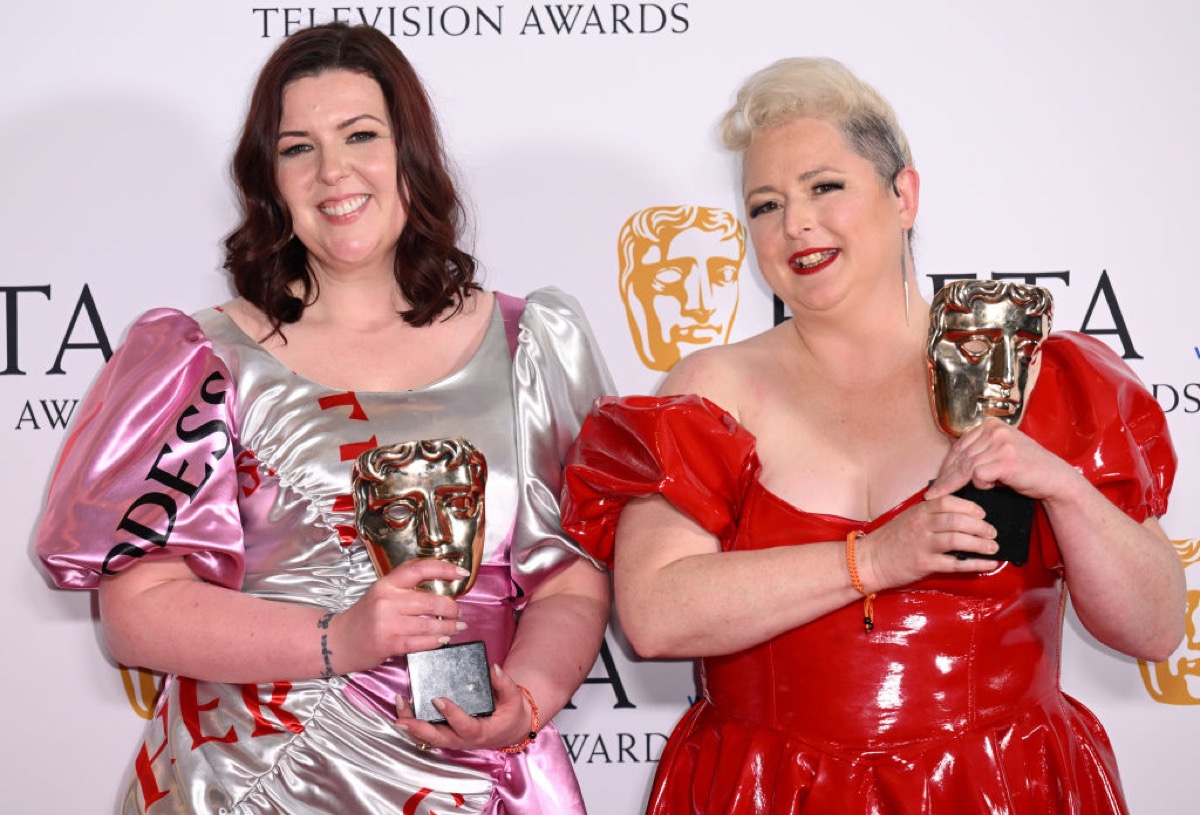Beloved comedy Derry Girls picked up two BAFTAs this year, cleaning up Best Scripted Comedy as well as Best Female Comedy Performance for Siobhan McSweeney in her role as Sister Michael. However, it seems those responsible for broadcasting the BAFTAs over at the BBC haven’t actually watched the show, or have at the very least missed the point of it, as they chose to edit out the political commentary McSweeney included in her acceptance speech.
During her speech, McSweeney criticized the Westminster (U.K.), Stormont (devolved Northern Irish), and Dublin parliaments for their mishandling of issues impacting Northern Ireland and Derry in particular.
“To the people of Derry, thank you for taking me into your hearts and into your living rooms. I am daily impressed with how you encompass the spirit of compromise and resilience despite the indignities, ignorance, and stupidity of your so-called leaders in Dublin, Stormont and Westminster. In the words of my beloved Sister Michael, ‘It’s time they started to wise up.’”
However, what the BBC decided to broadcast was cut directly from Sweeney saying the words “living rooms” to the thunderous applause that was actually in response to the political commentary they edited out.
When asked about this decision, the BBC was full of excuses. Though it was only two short sentences, that was supposedly two too many for the BAFTAs’ run time, which is the excuse the BBC provided Variety on their decision to cut the very short political element from McSweeney’s speech.
“As in previous years, due to the nature of the show it is broadcast with a short delay, and while we always aim to keep the core sentiment of acceptance speeches, edits have to be made due to time constraints.”
The fact that this turned McSweeney’s speech into something anodyne and acceptable to the status quo—especially the notoriously touchy sitting Conservative majority in Westminster, who react to criticism like scalded cats—was apparently just a coincidence. As far as the BBC is concerned, there was nothing they could have cut instead, and her joke about not being Cillian Murphy and the full periods of applause shown were far more vital than insightful commentary on the political situation in Northern Ireland, especially when she received the award for her work on a show written about it!
This excuse doesn’t fly at all, as we know for a fact that the BBC actually has a panel reviewing the BAFTAs specifically so they can prevent anything they perceive as overtly political or sexual from being shown during the “live” broadcast. It seems extremely unlikely that the highly relevant—and frankly very polite, given the context—political statement made by McSweeney just happened to be cut for time rather than being singled out by that panel to ensure that no one (or at least none of their wealthy and powerful friends) was upset by it.
This isn’t the first time the BBC has been accused of political bias lately. For a company that’s allegedly impartial and apolitical—claims used to justify its publicly funded status—the BBC as a corporation has been exhibiting what seems to be increasing pro-regime biases over the last few years. Banning journalists from participating in Black Lives Matter marches or even publicly expressing support of the movement in their off hours, refraining from broadcasting an episode of nature documentary Wild Isles for fear of provoking a right wing backlash, canceling political comedy show The Mash Report because of its alleged left-wing bias, and the high profile firing of Gary Linnekar after he tweeted criticism of the government’s heinous anti-refugee bill (something he was not contractually barred from doing) are just some of the decisions by the allegedly impartial broadcaster that have been raising alarm bells lately.
The thing about impartiality is that it isn’t neutrality; it’s presenting facts, including statements made by public figures, as they are. Editing out expressions of dissent so it seems like they’re not there isn’t giving an impartial view of events; it’s presenting a fictional one and calling it reality. Given the respect and trust people have in the BBC, because of their decades-long reputation as an unbiased and accurate source, this is concerning. Add in the pattern of trying, and succeeding, to limit the free expression of public figures affiliated with them—and, due to their sheer size, how many of the trusted voices in the British media are included in that—and the implications for British democracy are more than concerning.
To quote Sister Michael, it’s time to catch ourselves on.
(featured image: Karwai Tang/WireImage)










Published: May 15, 2023 9:19 PM UTC